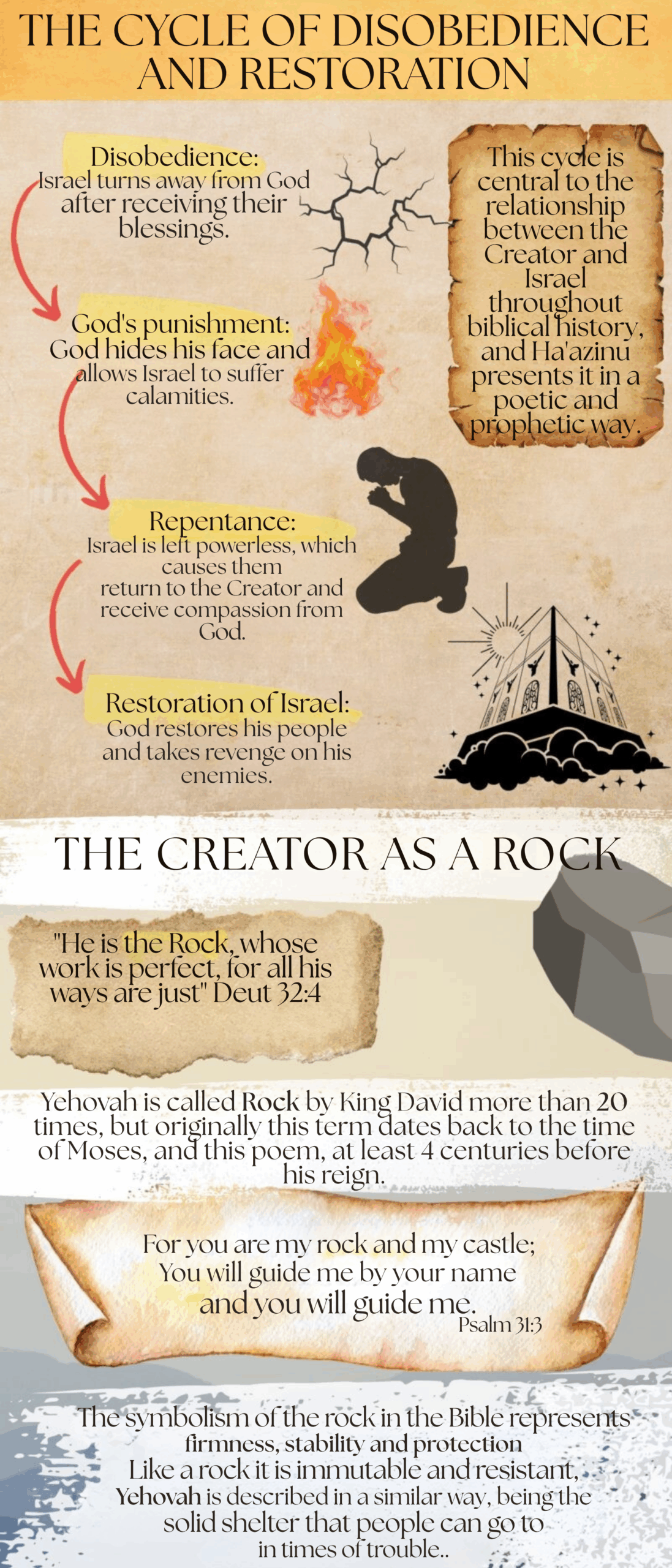Parashah Ha'azinu
Deuteronomy 32:1-52
In the Parashah Ha’azinu, we encounter the powerful song that Moses recited before the people of Israel as they stood on the threshold of the Promised Land.
This song is not merely another piece of poetry; it is a prophetic testimony intended to serve as a reminder for future generations. In the preceding chapter (Deuteronomy 31:21), Moses had already warned that when Israel would depart from Yehovah and experience calamities, this song would rise as a witness against them. It would testify to their rebellion and affirm the justice of God’s judgments.
Through Ha’azinu, Moshe leaves behind an eternal legacy that cannot be erased. Every word was meant to be engraved upon the collective memory of Israel, continually reminding them both of the blessings promised through obedience and of the severe consequences that follow estrangement from the Creator.

The Song of Ha’azinu not only serves as a reminder to the people of Israel of their past history and their prophetic future, but it also challenges us today to reflect on our own relationship with the Creator. It invites us to consider the consequences of our actions and the importance of obedience.
Throughout the cycle of disobedience, judgment, repentance, and restoration, the unshakable love of Yehovah is revealed. Despite rebellion, He continually provides a way back. This message remains timeless, reminding us that although we may stray, Yehovah is always willing to restore us if we return to Him with a repentant heart.
Questions for Reflection:
- How can I recognize the cycles of disobedience and repentance in my own life?
What moments in your life may have been warnings from God, and how did you respond to them?
What does the image of God as the “Rock” represent for you in times of uncertainty or difficulty?
How can you strengthen your relationship with Yehovah to avoid the cycles of disobedience and repentance seen in Israel’s history?
In what ways can you teach future generations to remember the lessons that Yehovah has taught throughout biblical history?